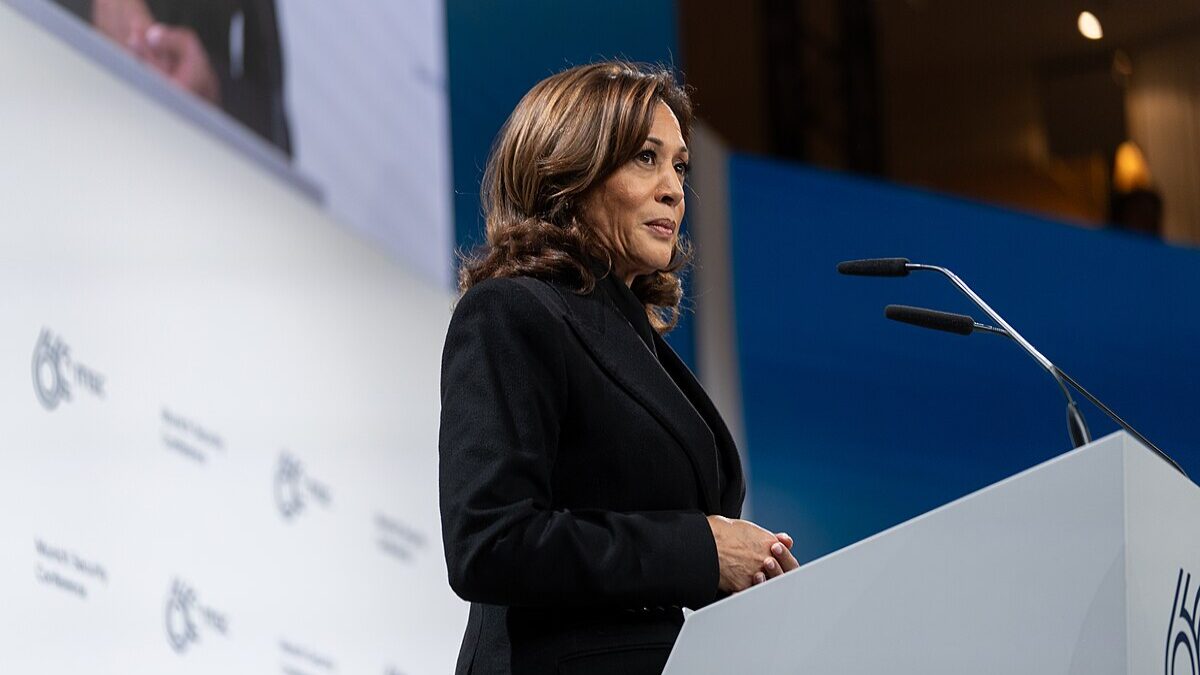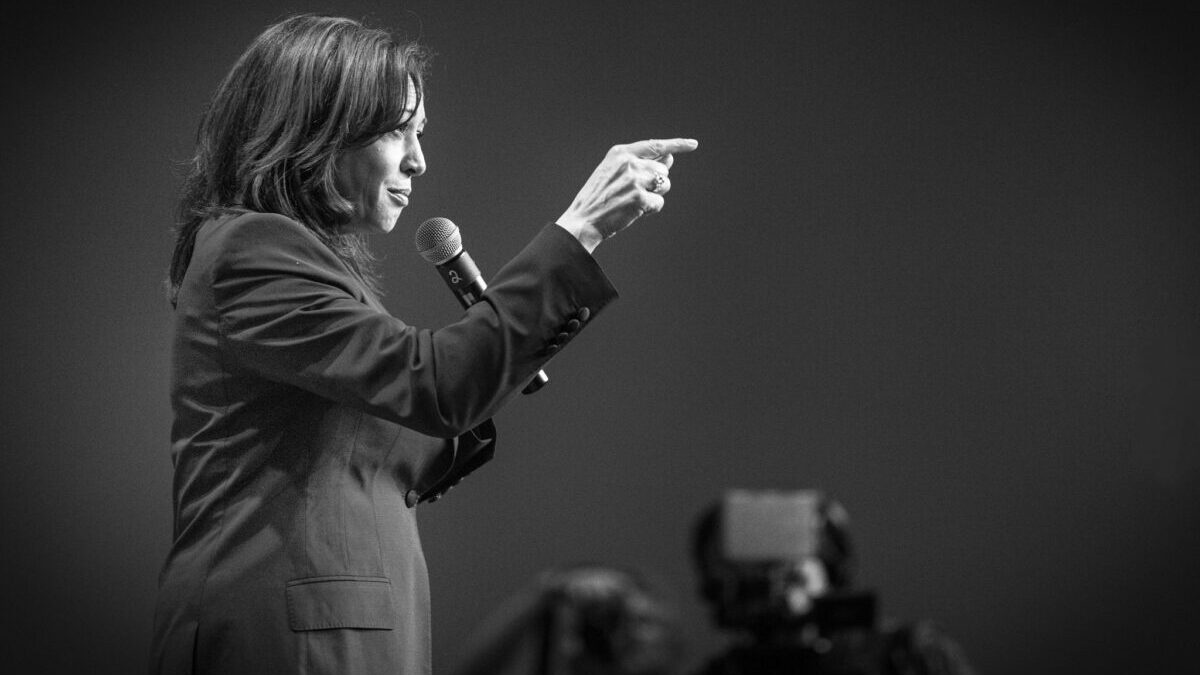
Before Donald Trump shocked the world this morning with his upset victory, becoming the 45th president of the United States, The New Republic wrote a piece in expectation of Clinton’s win.
Senior Editor Jeet Heer bemused that Election Day “would not be a day of victory”—but not because he expected Hillary Clinton to lose. Rather, he cautioned exultant Democrats because Trump’s voters (prone to “nationalism and prejudice,” “willing to condone racism and sexism,” “hurting women and people of color”) would still exist.
“As welcome as Trump’s loss will be, such celebration and consolation would be premature,” he warned. “The majority of voters will have done their duty to protect our democracy—and perhaps the world—from a grave threat, but we cannot move on so easily. Not until America grapples with the hatred that made Trump so successful.”
One can only imagine Heer’s consternation, then, when that “hatred” fueling the American populace proved more powerful and potent than the Clinton victory he was so eagerly expecting.
This Election Shows Just How Out of Touch the Media Has Become
There was another story in The Atlantic last week, lauding the “intelligence,” “industriousness,” and “grit” (among other virtues) of Hillary Clinton. The author, Chimamanda Adichie, said that the “conservative media” and “conservative writers” loathed Clinton—but unfairly, and in isolation. She added,
The people who love Hillary Clinton know that the IT system at the State Department is old and stodgy, nothing like a Blackberry’s smooth whirl. Hillary Clinton was used to her Blackberry, and wanted to keep using it when she became secretary of state. … The American conservative media saw an opportunity to blow the ’emails’ story out of proportion, soon followed, almost bashfully, by the rest of the American media, obeying the noble rules from journalism school, insisting on false equivalencies even where it makes no sense, which is partly why it has become common to hear that both candidates are equally corrupt.
Comments under Adichie’s article and on Twitter waffled between the amused and the incredulous. A majority of people did not recognize this population of blithely trusting Hillary fans. And if last night was any indication, people were not, in fact, so forgiving of Hillary’s Blackberry and its “smooth whirl.”
What’s more, the media were not merely “obeying the noble rules from journalism school” in their coverage of Hillary’s email scandal. Indeed, they underestimated Clinton’s problem among American voters. They did not see how many distrusted a candidate who consistently chose cover-up and silence over honesty and transparency. The media often lauded her strengths, mused on the historic wonder of electing the first woman president, and applauded Hillary’s tolerance and inclusivity over the nationalist tendencies of Donald Trump. There was nothing “bashful” in their demeanor.
Here are five things we can learn from the media, post-November 8.
1. How Much the Average Person Hates and Distrusts Them
Earlier this year, I was sitting in a Bible study group. We were discussing lies and deception. One young mother spoke up. “It’s like the media,” she said. “They twist and distort everything, and you can’t trust anything they say.”
I was used to talk show radio listeners and Fox News watchers telling me this. But if this gentle-toned mom was convinced the media was out to deceive her, how many other Americans would probably say the same? A few months later, a D.C. professional told me the same thing—absentmindedly, as if it were a matter of course. “Of course we can’t trust anything the media say,” she bemoaned. “They’re always lying to us.”
Perhaps we could say these women are wrong. Perhaps we could say they’re a minority, and don’t reflect the sentiments of the nation at large. But last night happened. A majority of the mainstream media expected a Clinton victory—many of them, with applause and celebration. Then their expectation turned to consternation, as Trump took the lead. They floundered, as they realized (perhaps some of them for the first time) how little they knew or understood the average American.
Sadly, the average American knew and understood them long ago. The media are just starting to catch up.
2. How Blatantly Wrong They’ve Gotten This Election
When Trump announced his candidacy, I read about it in the Washington Post’s Express paper, alongside other metro-goers as we commuted into D.C. The attitude that day, as throughout those early days of the primaries, was mostly bemused. After the first Republican primary debate, at which Megyn Kelly grilled Trump over his past treatment of women, the mood shifted to concerned and rebuking. But really, honestly, we had no idea what was coming.
Throughout the course of the campaign, the media would shift from attacking Trump, to making fun of his absurd candidacy, to writing fearful predilections of his win (which no one really believed would happen), to musing that maybe, just maybe, a win wouldn’t be so bad.
But once Trump shocked everyone by winning the primaries, the media began to press into those feelings of consternation, chastisement, and fear. Reporters attended Trump rallies, writing headlines like, “Inside a Trump Rally: good people in a feedback loop of paranoia and hate.” Many of these reporters had the air of infiltrating a prison, or a Communist country. “I’m on the inside,” they whispered. “Here’s what life looks like among the unwashed masses.”
Yet those unwashed masses were, in fact, normal people. And Trump was telling them what they wanted to hear: addressing their fears surrounding national security, a mucked-up immigration system, the threat of global terrorism, America’s loss of jobs, post-industrial collapse in much of rural America, and a wave of “political correctness” that, in their minds, threatened public discourse and dissent.
As the election wore on, the media continued to preach defeat and condemnation at Trump’s followers. They rallied more resources to their cause, from the 2005 tape with Trump’s sexual assault-minded comments, to the women who said Trump had assaulted them, to the many gaffes Trump continued to commit over the course of his campaign.
A lot of journalists opened Tuesday morning believing these efforts had been successful: the electorate was informed. The people knew just how misogynistic and racist Trump could be. They would choose the “better” of the two candidates, Hillary Clinton. But once again, they got it wrong.
3. How Divisive and Divided the Media Have Become
There are two Americas—or at least, two perceptions of America that voters most likely buy into. One is supported by a host of “conservative” media, led by the likes of the Drudge Report, talk show radio hosts like Rush Limbaugh, Sean Hannity, and Hugh Hewitt, and Fox News. They proffer one perspective on the country. They condemn the workings of Obama and Clinton, reminding voters of their discontent over issues such as Obamacare, Benghazi, Hillary’s email scandal. They (with justification) see Trump as a giant rebuttal to the status quo, a refusal to let the establishment have their way.
Meanwhile, the New York Times, Washington Post, and major cable news channels like MSNBC and CNN had a hard time understanding Trump or his supporters. They undersold the impact of the FBI investigation into Hillary Clinton, while promoting the controversial nature of Trump’s comments on minorities, women, people with disabilities, etc. They spoke to liberal elites and the cosmopolitan American, safely segregated away from America’s more rural and municipal voters. And they spoke well: inspiring a fury and consternation that led many to believe a Trump win was impossible.
But these two Americas have thus far existed in isolation, talking over, around, or in spite of each other. This became painfully obvious last night. We no longer understand each other. We’ve been calling each other names for years now, seeking to vilify and castigate—but rarely to understand.
4. How the Decline in Local Newspapers and Rise of Partisan Blogging Brought Us Here
My journalism professor once suggested that, as the Internet brought an overwhelming glut of news to the American electorate, more and more reporters would become “curators”: culling news coverage for the most important pieces of information, and offering those pieces to their followers with a bit of analysis.
This has become a very common practice. While a handful of national or state newspapers proffer hard news, many readers turn to pundits and bloggers (including some here at The Federalist) to determine what’s most important, and what opinions they should form on these topics.
Alas, it seems that many of these bloggers and pundits (myself included) have not always done their job well. We’ve listened to the media surrounding us, while losing sight of the average voter. We have talked to each other, instead of to the folks intended to be our audience. And we’ve lost perspective in the midst of this echo chamber.
It’s not wrong to write from a point of view. But I would argue that partisan reporting should be a much smaller percentage of the news dispensed than it is. Meanwhile, state and local newspapers could and should serve a much larger role in 1) informing their populace, and 2) giving a clear-eyed, honest look at the desires and intentions of voters in their communities.
In 2013, I heard Mark Leibovich (author of “This Town”) give a talk on journalism. He offered a rather bleak view of the Washington D.C.’s prevalent politics and reporting. In “This Town,” he wrote of Washington in frank and disenchanting language, painting the picture of a city wallowing in “egregious” and “unsustainable” corruption, fixated on money and power.
At that talk, Leibovich encouraged young reporters to embrace “rootedness” and community, rather than seeking the popularity and charisma of Washington. “Being immersed in small communities gives one an exposure to how people interact, a more hands-on approach to things,” Leibovich said in response to an email at the time. As I wrote in a piece about Leibovich’s talk,
D.C. media and political leaders often become fixated on their own sphere of political bias, to the detriment of objectivity and even courtesy. Leibovich believes Washington’s reporters are often disdainful of their customers (Leibovich referenced a Politico story entitled ‘Are Voters Dumb?‘ that appeared on their front page in 2012).
Journalists writing and living in community recognize their customers. They develop relationships with them, and learn to seek the good of those communities. Leibovich said that any reporter or politician who wants to come to D.C. should first develop this rich background—and added that they (politicians especially) should return to their homeland, and not remain in the noxious D.C. atmosphere.
We’re seeing the prescient importance of these words today. Voters are tired of being called dumb (and “racist” and “bigots” and “sexist” and “xenophobes”). Journalists, separated into their enclaves of cosmopolitan liberalism, have forgotten how to serve their customers. Indeed, many of them have forgotten who their customers even are.
5. How to Reform the Echo Chamber
We’ve forgotten the power of the “other”: those people outside and beyond our personal experience and sphere of influence. We’ve lost sight of the faces and voices and lives so different from our own. And we’ve done this to our own detriment. Media that speak only to themselves are not only useless—they’re depressing. They’ve lost sight of any truth but their own, and in the process, have lost the trust of those who formerly turned to them for information and insight.
Liberals should begin reading or listening to conservative voices they’ve hitherto ignored. They needn’t read the Drudge Report every day, though it seems Drudge’s coverage of this election has been more predictive than most. But we have to expose ourselves to the voices and perspective we’ve ignored in the past. Conservative reporters, too, should not ignore those on the left they might otherwise disdain.
But more importantly, we must listen and discuss and interview people on the ground: stop reading one perspective on issues, and seek to connect with the people who walk our streets, attend our schools, and show up at the voting booths. This will require empowering and advancing local media, as much as possible. It will also require pundits and bloggers (myself included) to brush off our reporting skills, and get away from our computers more often.
As Ben Domenech noted this morning,
The majority of political reporters never seemed to get outside their bubble. They spoke to anti-Trump conservatives, and printed anti-Trump views from conservatives, but rarely would even publish the sorts of views I and others have been sounding for months about the real and rational gripes of Trump voters. Many in the media preferred the caricature to the real thing. If you are a member of the media who does not know anyone who was pro-Trump, who has no Trump voters among your family or friends, realize how thick your bubble is. Change this. Don’t stick to the old sources, who clearly didn’t know what was going on – add new ones, who offer the perspective from the ground.
Perhaps one of the most pivotal moments of this year was the publication of J.D. Vance’s book “Hillbilly Elegy.” Balanced and thoughtful, nonpartisan and even-handed, Vance’s book looked at the state of rural America from a position of love and understanding—even as he acknowledged the fact that, in many ways, he was no longer “one” with this community.
The book was a monumental “aha” moment for both conservatives and liberals, as they saw a clear-eyed look at the state of America’s Appalachian community, with lessons that extended throughout the U.S. heartland and other struggling communities. Vance, by refusing to accept the cliché prognostications or condemnations, was able to write a book that appealed to—and convicted—both parties, both versions of America.
If we’re to overcome the deeply divided and deceiving media world we currently live in, we’re going to have to try to do the same.







